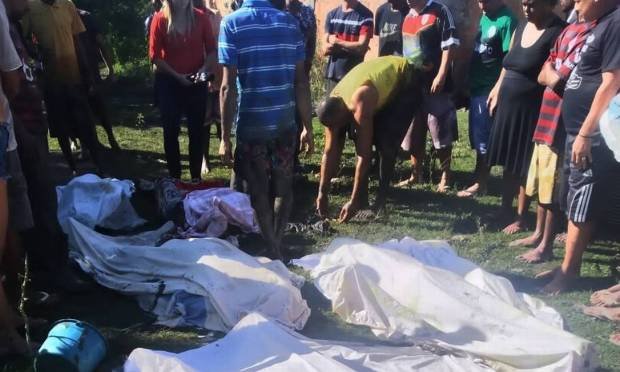PN #42 – In repudiation of the São Gonçalo massacre
4 Nov 2021, 19:33
The Dom Paulo Evaristo Arns Commission for the Defense of Human Rights – the Arns Commission – has been monitoring with concern the episodes of police violence resulting in deaths throughout Brazil, such as the one that occurred last November 21, in the Salgueiro Complex, in São Gonçalo, a municipality in the state of Rio de Janeiro.
In this locality, 11 bodies with signs of torture and shots in the head and back were found abandoned in the mangrove, according to reports from family members, in addition to several persons wounded after an operation by the military police of the Special Police Operations Battalion (Batalhão de Operações Especiais – BOPE, in Portuguese). There are strong indications that the execution was motivated by revenge because a military policeman was supposedly killed in the same place a few hours earlier.
The personal accounts and news reports regarding the facts related to these and other cases point to an escalation of police violence that terrorizes impoverished communities and does not even spare children and the elderly.
The situation becomes more serious by verifying that there was no prior notification to the Public Prosecutor’s Office, which would be the one responsible for verifying the indispensable character of the operation, according to the parameters established by the Federal Supreme Court (STF) in the Claim of Non-Compliance with a Fundamental Precept (Arguição de Descumprimento de Preceito Fundamental – ADPF, in Portuguese) No. 635, which imposed restrictions on the abusive use of force against vulnerable communities in Rio de Janeiro.
Considering the high rate of police lethality in Brazil, we believe that state governments must fulfill their duties regarding the management and control of security forces by seriously facing these human rights violations. State authorities cannot remain as inert spectators of the advance to barbarism, or they will soon be summoned to be held accountable for their omission.
The Salgueiro massacre shows that strict control over police activity is urgent and necessary. In a Democratic State, the death of a civil servant cannot be the trigger for retaliations typical of the already surpassed Talion Law.
For their part, the institutions of the Justice System must act with strength by effectively engaging in the investigation of the legal nature of the use of force in question. They must ensure that police actions respect fundamental rights such as the life and physical integrity of citizens, complying with and enforcing the orders of the Federal Supreme Court. Only then the Rule of Law will regain its validity in Brazil. There is no need to wait for the next slaughter in order to act.
Photo: Reproduction